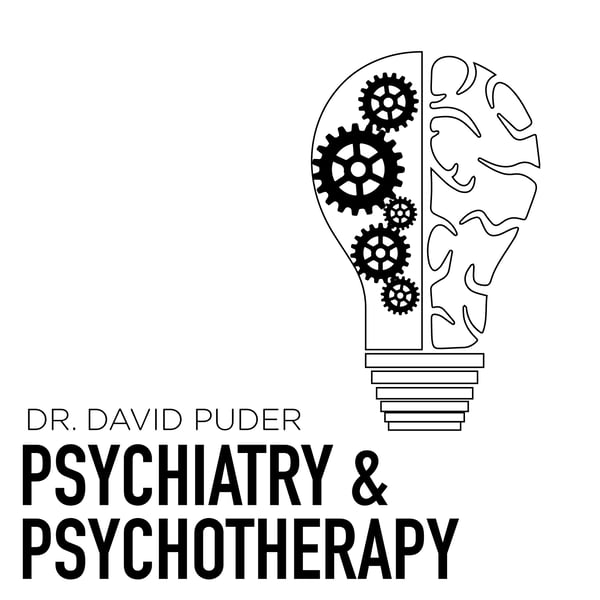Sensorium: Total Brain Function Optimization Part 1
Psychiatry & Psychotherapy Podcast
David J Puder
4.8 • 1.3K Ratings
🗓️ 19 February 2018
⏱️ 42 minutes
🧾️ Download transcript
Summary
Sensorium is the total brain capacity for focusing, processing, and interpreting. It is not a static state—it can fluctuate throughout the day.
It can be influenced by sleep, food, stress, exercise, drugs, medications, and long term, through epigenetic phenomenon.
If there is damage to the structure of the brain, it can permanently lowered.
It is a slope, which we all move up and down on, based on our baseline, but then also influenced by many factors.
In your 20s and 30s you are very far on the left side of the line. If you get stressed, sleep deprived, starving, maybe have a small infection, you may still be able to think, but just less clearly. If you did those same things to an elderly person, they would be sent into a full delirium, hallucinating, throwing things, yelling, seeing spiders on the wall, and looking psychotic. In this way it is common for an elderly person with dementia, they can be more confused in the evening then in the morning, they call this “sundowning”.
We all have a baseline level of brain function, and this can be optimized by several factors like good sleep, good amounts of exercise, good mental functions (like reading), meaningful relationships, good spiritual practice, and meaningful work.
For more notes on this episode go to: psychiatrypodcast.com
Join David on Instagram: dr.davidpuder
Twitter: @DavidPuder
Facebook: DrDavidPuder
Personal Website: www.DavidPuder.com
Transcript
Click on a timestamp to play from that location
| 0:00.0 | Welcome to the Psychiatry and Psychotherapy Podcast. The podcast to help you in your journey |
| 0:06.0 | towards becoming a wise, empathic, genuine and connected mental health professional. |
| 0:11.0 | I'm your host, Dr. David Puder, a psychiatrist who splits his time practicing psychopharmacology, |
| 0:17.0 | individual and group psychotherapy, medical director of a day treatment program, |
| 0:21.0 | medical education research, and teaching residents and medical students. |
| 0:30.0 | In this podcast episode, I am going to dive into a topic that is near and dear to my heart. |
| 0:39.0 | I work in a unique kind of role in psychiatry because I am the medical director of a day treatment program, |
| 0:45.0 | an IOP and a partial program that said about, you know, either three or eight hours a day, |
| 0:50.0 | three to five days a week. And in this program, I treat people with all sorts of medical issues, |
| 0:57.0 | whether it be head injuries, strokes, seizures, psychogenic seizures, |
| 1:02.0 | fibromyalgia, chronic fatigue, chronic migraines, chronic pain, uncontrolled diabetes. |
| 1:07.0 | So I see a vast sort of conglomeration of people with medical issues and psychiatric issues. |
| 1:14.0 | And one of the common complaints that I get is with focus and concentration. |
| 1:20.0 | And I found that also, if I am able to optimize their brain function, |
| 1:24.0 | their total brain function, something that I am going to call sensorium. |
| 1:29.0 | If I can optimize that, then they can engage at a higher level in the psychotherapy process. |
| 1:36.0 | And they can also sort of regain a lot of the function that they may have lost |
| 1:42.0 | through having medical issues. |
| 1:45.0 | And so I have this unique approach to how to kind of think through sensorium, |
| 1:52.0 | total brain function, which I would like to share with you. |
| 1:55.0 | In this first episode, I'm going to go through the basic theory of it |
| 1:59.0 | and some of the stories that kind of can illustrate it. |
... |
Please login to see the full transcript.
Disclaimer: The podcast and artwork embedded on this page are from David J Puder, and are the property of its owner and not affiliated with or endorsed by Tapesearch.
Generated transcripts are the property of David J Puder and are distributed freely under the Fair Use doctrine. Transcripts generated by Tapesearch are not guaranteed to be accurate.
Copyright © Tapesearch 2025.

